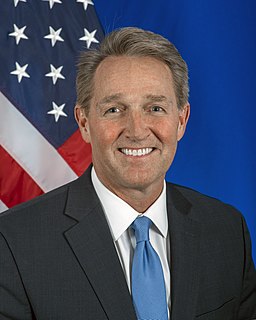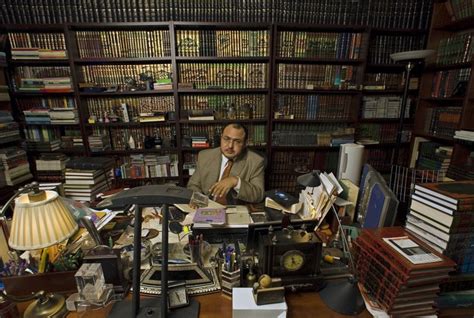A Quote by Seyyed Hossein Nasr
The significance of the vast Islamic scientific tradition for Muslims and especially for young Muslims today is not only that it gives them a sense of pride in their own civilization because of the prestige that science fhas in the present day world. It is furthermore a testament to the way Islam was able to cultivate various sciences extensively without becoming alienated from the Islamic world view and without creating a science whose application would destroy the world of nature and the harmony that must exist between man and the natural environment.
Quote Topics
Able
Alienated
Application
Because
Becoming
Between
Civilization
Creating
Cultivate
Day
Destroy
Environment
Exist
Furthermore
Gives
Harmony
Islam
Islamic
Man
Muslims
Must
Natural
Natural Environment
Nature
Only
Own
Present
Present Day
Prestige
Pride
Science
Sciences
Scientific
Sense
Significance
Testament
Them
Today
Tradition
Various
Vast
View
Way
Whose
Without
World
World View
Would
Young
Related Quotes
It is for Muslim scholars to study the whole history of Islamic science completely and not only the chapters and periods which influenced Western science. It is also for Muslim scholars to present the tradition of Islamic science from the point of view of Islam itself and not from the point of view of the scientism, rationalism and positivism which have dominated the history of science in the West since the establishment of the discipline in the early part of the 20th century in Europe and America.
It is true that neither the ancient wisdoms nor the modern sciences are complete in themselves. They do not stand alone. They call for one another. Wisdom without science is unable to penetrate the full sapiential meaning of the created and the material cosmos. Science without wisdom leaves man enslaved to a world of unrelated objects in which there is no way of discovering (or creating) order and deep significance in man's own pointless existence. (p. 4)
Muslims naturally saw Christendom as their arch rival. One point that is really important to bear in mind, particularly in addressing an American audience, and that is that the Islamic world has a very strong sense of history. In the Muslim world, history is important and their knowledge of history is not always accurate but is very detailed. There is a strong historical sense in the Muslim world, a feeling for the history of Islam from the time of the Prophet until the present day.
We must not be afraid to define our enemy. It is Islamic extremist terrorism. I did not say all of Islam. I said Islamic extremist terrorism. Failing to identify them properly maligns decent Muslims around the world. It also sets up a fear of being politically incorrect that can have serious consequences. And it has.
We now have some years of very reliable polling by Western firms in the Islamic world, in multiple Islamic countries. And invariably, the question that asks, "Do you view U.S. foreign policy as an attack on Islam and Muslims?" is maxed out. Whether it's Jordan or Indonesia or Egypt, you get 80,85 percent of people saying "Yes."
I think confronted with the modern world or with the rest of the world, I think people are becoming aware that the Western and Islamic civilizations have more in common than apart. It was a German scholar, C. H. Becker, who said a long time ago that the real dividing line is not between Islam and Christendom; it's the dividing line East of Islam, between the Islamic and Christian worlds together on the one hand and the rest of the world on the other. I think there is a lot of truth in that.
Sufis have always been those that have tried to purify the ethics of Islam and society. And they don't have their hands cut off from the external action at all. For example, the bazaar in which the Sufis were very strong always dominated economic life in Islamic world. They could give a much more sane and Islamic form of activity when the economic life of Islam moved out of the bazaar to new parts of Islamic cities with modernized Muslims, who took it in another light and it became very, very anti Islamic, and much against many of the most profound practices of Islamic societies.
The second part of that war was that Muslims came from all over the country to Pakistan, and they met each other. For the first time those men had an awareness of the Islamic world as a whole, not of just Egypt or Algeria or Indonesia, but of what Muslims call the Uma, the Islamic community. And that's an extraordinarily important thing. And that emanated in Pakistan.
The west is very concerned and actually afraid because the media is not informing them. There are too many moderate Muslims who are trying to whitewash the fears and concerns of the West. It's time for us to face reality - nobody is against Muslims. When I'm speaking about this situation, it's about Islamic doctrine. Islamic doctrine promotes violence and hatred against non Muslims. 60% of the Koran is dedicated to cursing and spreading hatred and violence against non-Muslims who are called 'Kaffir'.
Islam does not mean peace. It means submission. The word "peace" for Muslims has a different meaning. Peace, according to Muslims, will be achieved when everyone submits to Islam. Muslims can't offer peace. They can offer truce. In their minds, peace will be achieved only when you are subdued and they are the masters. Any other arrangement is not Islamic.
The word "democracy" is a Western word obviously. It doesn't exist in Arabic. Democratiya is a loan word. We in the Western world make the great mistake of assuming that ours is the only form of good government; that democracy means what it means in the Anglo-American world and a few other places in the West, but not many others. Muslims have their own tradition on limited government. Now in Islam, there is a very strong political tradition. Because the different circumstances, Islam is political from the very beginning.
The sense of Islam as a threatening Other - with Muslims depicted as fanatical, violent, lustful, irrational - develops during the colonial period in what I called Orientalism. The study of the Other has a lot to do with the control and dominance of Europe and the West generally in the Islamic world. And it has persisted because it's based very, very deeply in religious roots, where Islam is seen as a kind of competitor of Christianity.





























